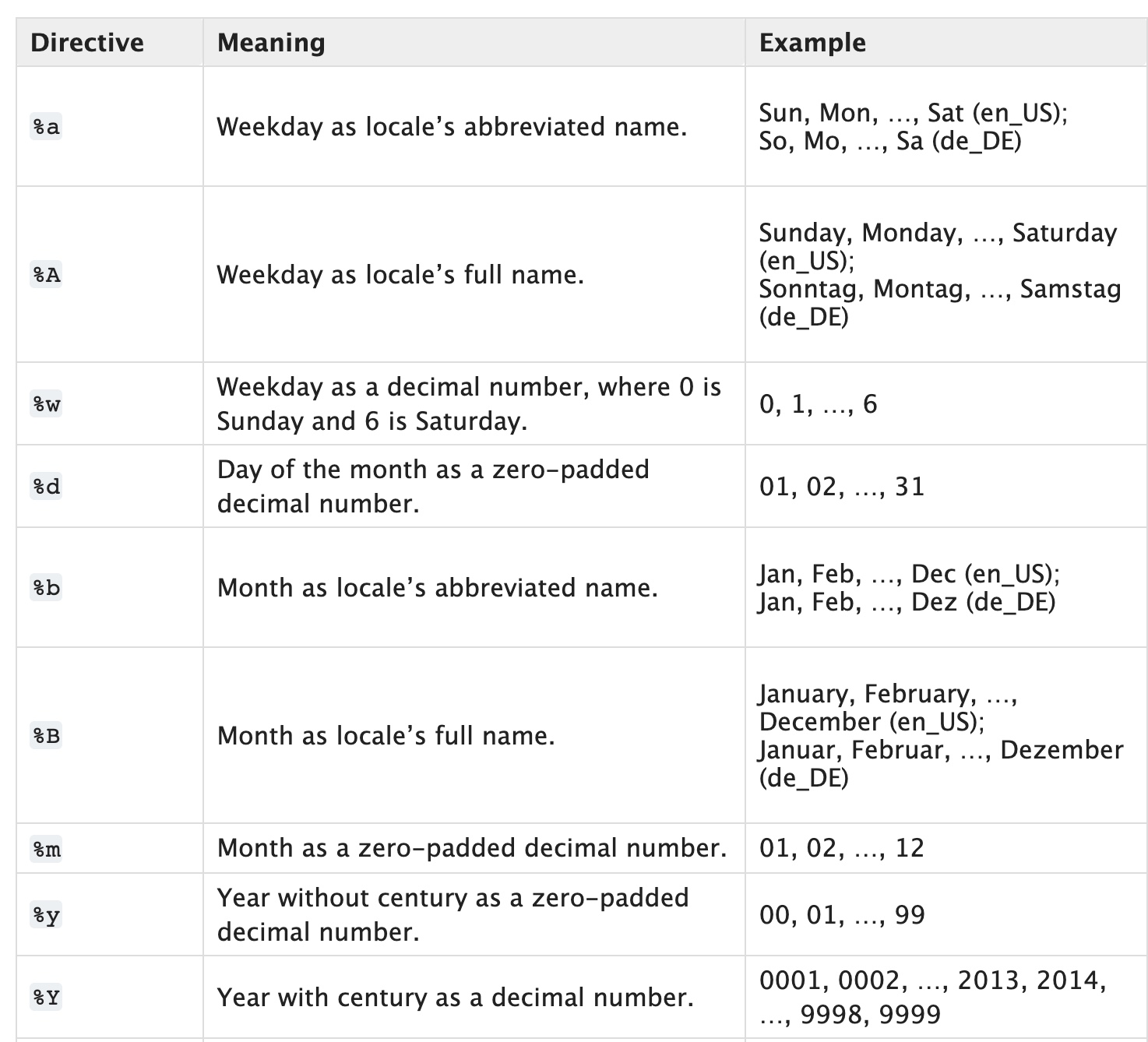Python string to datetime and datetime to string
In this article, we will learn how to convert string to date and date to string in Python with datetime. In the next sections, we will see how to use the strftime and strptime methods from the datetime class to format and parse dates, followed by code examples:
Datetime to String
To convert a date or datetime object into a string we can use the datetime class in Python. We can format and transform a datetime into a string using the strftime method. For example, in the following snippet we use strftime to convert the current_datetime variable into multiple formats:
from datetime import datetime
current_datetime = datetime(2021, 3, 28, 11, 30, 0, 0)
date_time = current_datetime.strftime("%d/%m/%Y, %H:%M:%S")
print("datetime: %s" % date_time)
date = current_datetime.strftime("%d/%m/%Y")
print("date: %s" % time)
time = current_datetime.strftime("%H:%M:%S")
print("time: %s" % time)
day = current_datetime.strftime("%d")
print("day: %s" % day)
month = current_datetime.strftime("%m")
print("month: %s" % month)
year = current_datetime.strftime("%Y")
print("year: %s" % year)In the example below, we used the strftime method to convert the current_datetime variable into a datetime, date, time, day, month and year format. If we run these lines of code, the output is:
datetime: 28/03/2021, 11:30:00
date: 28/03/2021
time: 11:30:00
day: 28
month: 03
year: 2020To learn more about all the supported formats, take a look at the list of the format codes that the 1989 C standard requires:
String to Datetime
To convert a string into a date and a datetime we can use the datetime class. We can parse a string into a datetime using the strptime method. In the following example, we use strptime to parse multiple strings in a different format and convert them into dates, time and datetime:
from datetime import datetime
date_time = datetime.strptime("28/03/21 11:30:00", "%d/%m/%y %H:%M:%S")
print("datetime: %s" % date_time)
time = datetime.strptime("11:30:00", "%H:%M:%S")
print("time: %s" % time)
date = datetime.strptime("28/03/21", "%d/%m/%y")
print("date: %s" % date)Running the snippet, the output is:
datetime: 2021-03-28 11:30:00
time: 1900-01-01 11:30:00
date: 2021-03-28 00:00:00